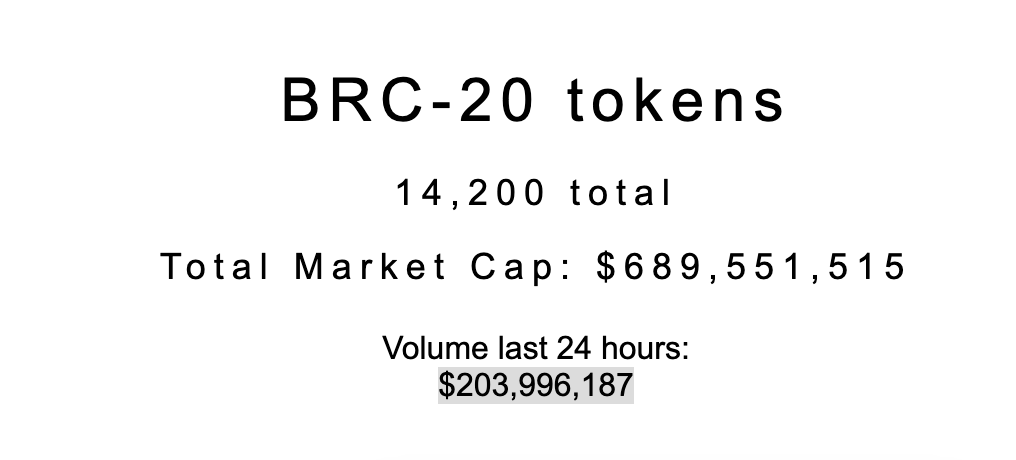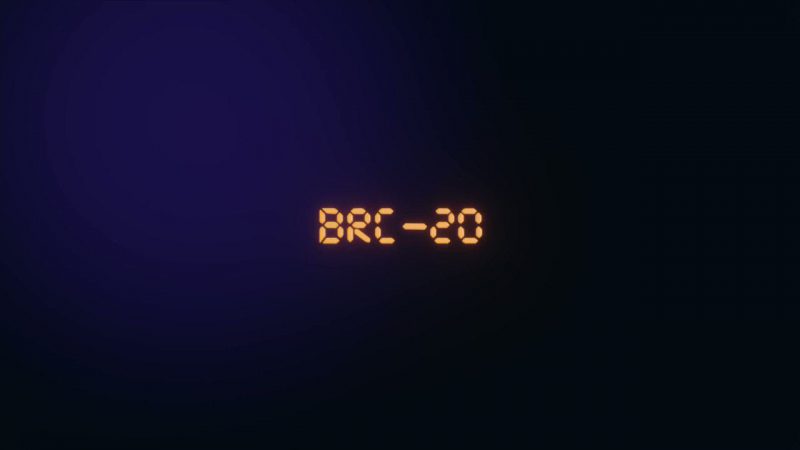2023 started out as a great year for the cryptocurrency ecosystem. The industry witnessed the arrival of several new assets. Moving beyond the meme coin craze, Bitcoin has made quite some noise over the last couple of months. While the king coin’s $30K retest was one of the reasons, Bitcoin’s BRC-20 tokens were the other. BRC-20 tokens are currently the talk of the crypto town. But what are these tokens?
Diving into BRC-20 tokens
BRC-20 tokens were introduced in March 2023 by an anonymous Twitter user going by the name “Domo.” These tokens are based on the Bitcoin blockchain and are short for “Bitcoin Request for Comment.”
The BRC-20 token standard is an experiment that takes cues from Ethereum’s well-known ERC-20 standard. Token standards are pertinent as they determine the usage and scope of a cryptocurrency in the market. Examples of other token standards include ERC-20, BEP-20, and TRC-20, among others.
What do these tokens do?
The BRC-20 token standard has eased the process of creating and trading fungible tokens using the Ordinals platform. The launch of the Bitcoin Ordinals protocol last year stirred up the community as it presented the potential for Bitcoin-based NFTs.
These assets can be found in the Bitcoin blockchain and are built employing Ordinals and Inscriptions. Developers use ordinal inscriptions of JSON data to create and manage token contracts, mint tokens, and transfer them. This makes it easier for developers to create new tokens and integrate them with existing Bitcoin-based applications and platforms.
How is this different than ERC-20 tokens?
For starters, the BRC-20 and ERC-20 token standards are based on different blockchains. Due to this difference, BRC-20 and ERC-20 tokens will be utilizing separate consensus mechanisms. In contrast to Bitcoin’s proof of work [PoW] mechanism, where miners are responsible for verifying transactions by solving complex computational problems, Ethereum uses the proof of stake [PoS] consensus mechanism. Validators stake ETH to secure the network and verify transactions for ERC-20 tokens.
BRC-20 tokens do not rely on smart contracts for their operations, unlike ERC-20 tokens. BRC-20 tokens use Ordinals and Inscriptions to function. Lastly, to mint or trade BRC-20 tokens, it is necessary to have a personal Bitcoin wallet.
How many BRC-20 tokens are in the market?
While the figures keep varying, there are currently a total of 14,200 tokens in the market. At press time, the market cap of these assets was at a high of $689,551,515.


The ORDI token which recently garnered a listing on Crypto.com and Gate.io dominated the space with a market cap of over $400 million. ORDI was trading for $16.98 on Crypto.com after a drop from a high of $29.04. Another asset, that has significantly contributed to this surge is the Pepe Coin [PEPE]. Additionally, the 24-hour volume of these assets amounted to $203,996,187.
Can BRC-20 tokens take on ERC-20 tokens?
Users have been viewing BRC-20 tokens as a promising opportunity for employing tokens on the Bitcoin blockchain. This is being done even though they are still deemed experimental. This could be due to the fact that BRC-20 tokens address a substantial encumbrance in Bitcoin’s functionality, that is the lack of smart contract abilities.
It is true that BRC-20 tokens are still in the experimental stage and have yet to prove their long-term viability and impact. Some skeptics believe that BRC-20 tokens could be a passing fad, and their popularity may not be sustained over time. The creator has even cautioned that the BRC-20 standard has its limitations and that the tokens may not hold any significant value.
Compared to BRC-20 tokens, ERC-20 tokens are more versatile and have a relatively well-established market presence. For example, if a user intends to purchase ERC-20 tokens, there are several popular exchanges that offer these tokens. However, this is not yet possible for BRC-20 tokens as they are still in the experimental stage and have yet to establish a significant market presence.
Additionally, it is important to note that the rise of BRC-20 tokens and their market capitalization in recent weeks indicates that there is significant interest and potential for the use of tokens on the Bitcoin blockchain. Only time will tell how successful and impactful BRC-20 tokens will be in the long run.





